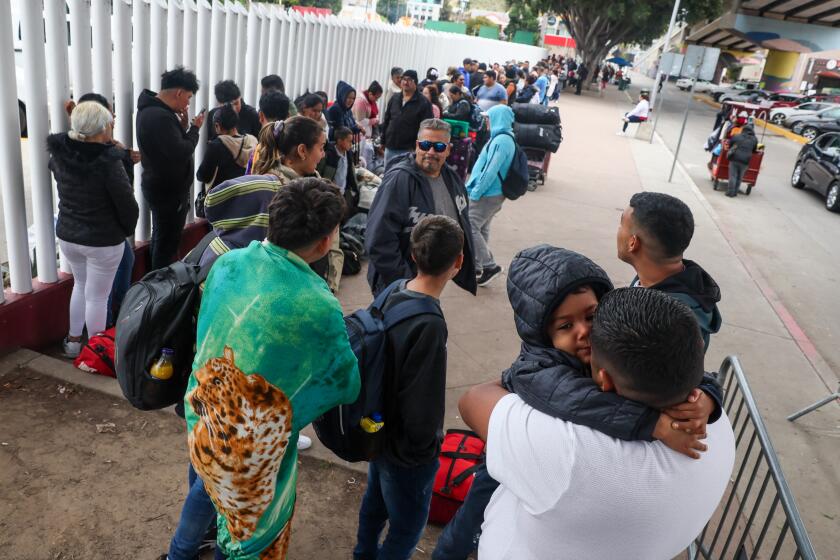The Issue Behind Nanny Scandal
Angela Kelley, deputy director of an immigrant advocacy group, “gave a small cheer” when she learned that Bernard Kerik had to withdraw his nomination as Homeland Security chief over a nanny who may have been an illegal immigrant.
“It was not that I didn’t want him to become secretary of Homeland Security, but more because it speaks to how far the reach is of our broken immigration system,” said Kelley, of the National Immigration Forum.
Kelley and other advocates on various sides of the immigration issue said Saturday that the Kerik incident once again showed the pervasiveness of the use of undocumented workers and the pressing need for an overhaul of the immigration system. But the sides differed over whether immigration enforcement should be toughened, or whether more accommodations should be made for undocumented workers.
The issue of how the U.S. should treat undocumented workers is divisive, say people who follow the issue, largely because Americans are ambivalent about illegal immigration. Though the nation is working to secure its borders and reduce illegal immigration, many say the economy has come to rely heavily on undocumented workers to perform basic and often low-paying jobs.
Kerik’s withdrawal shows that “the lawless immigration situation we have allowed to develop affects a lot of people in our society,” said Mark Krikorian, executive director of the Center for Immigration Studies, a think tank that supports tighter controls on immigration. “We have allowed illegal immigration to pervade our economy, and very few people are untouched.”
The divisiveness is apparent even within the GOP majority that controls Congress and the White House. President Bush has proposed a plan to allow some undocumented workers to remain in the U.S. as legal guest workers, saying it would bring “millions of hardworking men and women out from the shadows of American life.”
But Bush has run into opposition from lawmakers in his own party, some who say the plan would reward illegal behavior.
In addition, House Republicans are split over the question of whether illegal immigrants should be allowed to obtain driver’s licenses in the U.S.
There are at least 7 million illegal immigrants in the United States, federal immigration officials have estimated. Kerik is the latest of several presidential nominees in the last 12 years to have to withdraw his name because of having employed a possibly illegal immigrant.
Advocates in the immigration debate drew different lessons from the Kerik situation.
Krikorian said Kerik’s revelation showed the need for tougher enforcement of immigration laws. “There has been very little attempt to enforce the law in the last 20 years,” he said. “If we started to enforce the law, the message would get out.... Many who would consider coming here would change their minds.”
But Rick Swartz, an advocate for immigrants, said the situation underscored a need to recognize undocumented workers and give them better chances to become U.S. citizens.
“The reality is that there are millions of Americans who employ or otherwise benefit from the work of undocumented immigrants,” he said. Swartz added: “If Congress or state referendum were to require local police or National Guard to ferret out and deport undocumented workers, we would have a total uproar.”
Swartz noted that Kerik, like earlier failed nominees, spoke of the “personal bond” his family had with their nanny. “It reflects the reality for millions and millions of other Americans who have loved and trusted illegal immigrants,” Swartz said.
Kelley, who also favors changes in law to benefit immigrants, said she thought reform was “not a matter of if but when.”
She said the United States needed to overhaul the system “so we can be a nation of immigrants and a nation of laws.”
“We need to create legal channels for people to come to this country,” she said. “We need to find a path for residency for people to come out of the shadows.”
More to Read
Get the L.A. Times Politics newsletter
Deeply reported insights into legislation, politics and policy from Sacramento, Washington and beyond. In your inbox three times per week.
You may occasionally receive promotional content from the Los Angeles Times.






